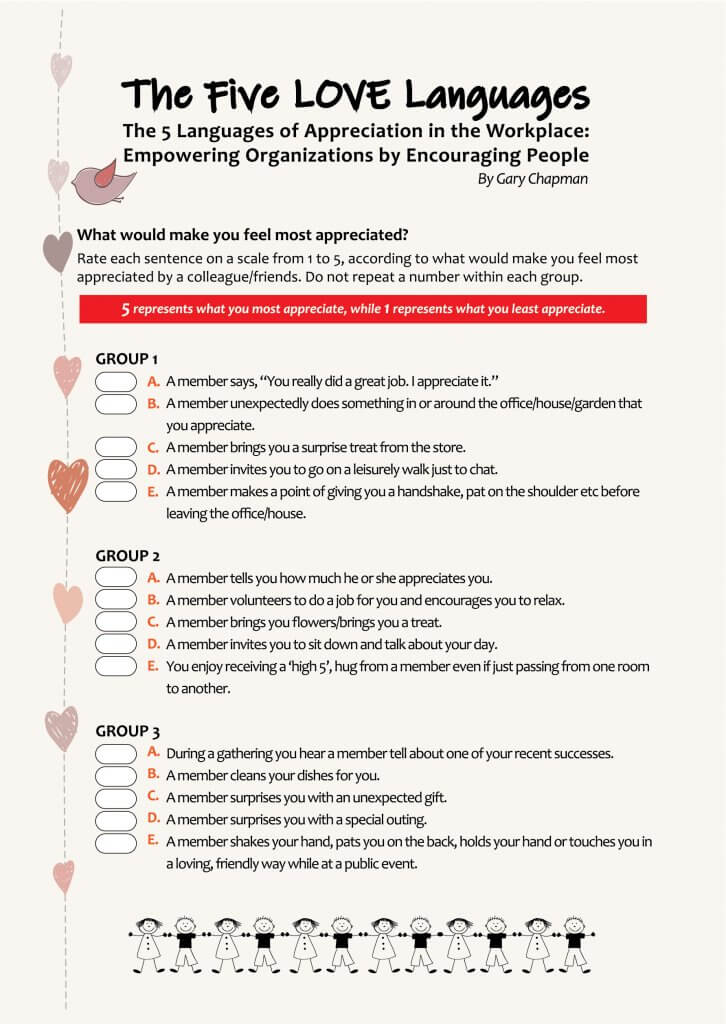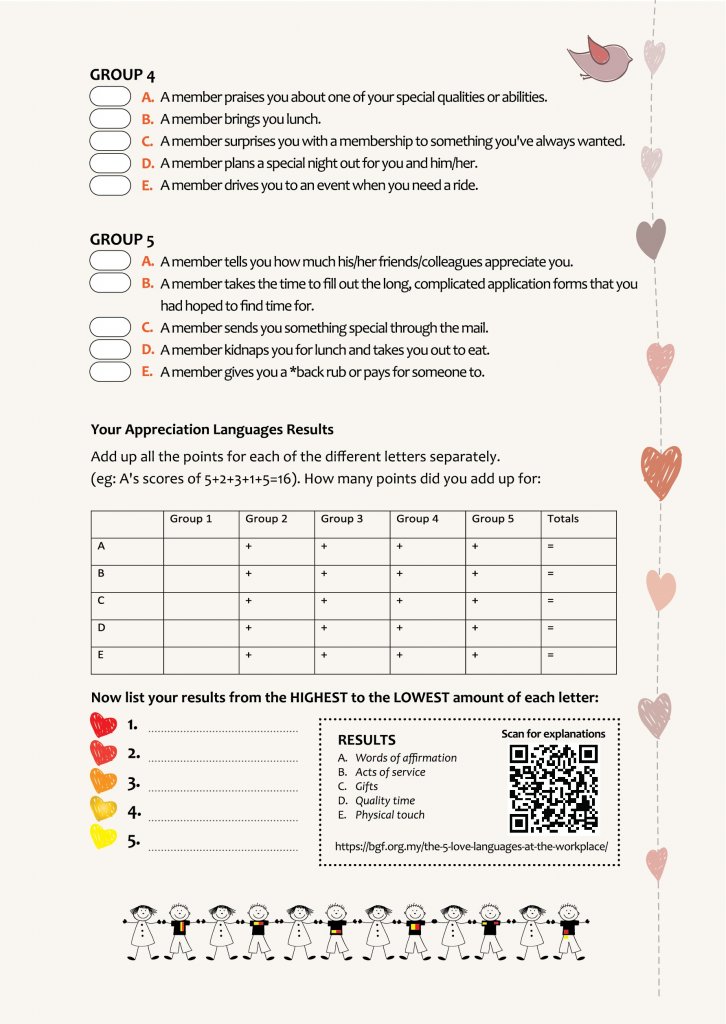The Five Appreciation Languages:
A) Words of Affirmation
Most couples exchange encouraging words, and business relationships benefit from them, too. Some clients won’t think twice about the company post-its you dropped off and will consider your monthly lunch meeting business as usual, but they’ll be ecstatic over a thank-you note sent for a purchase order or a meaningful email telling them how much you appreciate their business.
Even those you don’t necessarily have to “woo”—like your colleagues—value this love language too. Who doesn’t feel better, happier, or more productive when they’re told they’re doing a good job ? Sending a colleague a quick email when she’s done a great job on a project will speak volumes about how much you appreciate her work.
B) Acts of Service
For some people, there’s nothing better than when their significant other goes out of his way to do the dishes, take out the trash, or get the oil changed. Similarly, for some customers, nothing will impress them more than an little extra service. It doesn’t have to be a huge effort, either—little things like hand delivery, discounts on fees, or saving your client time by making her travel arrangements can go a long way in making her feel special and appreciated.
Going above and beyond your typical call of duty is also a great way to delight your boss and co-workers. If your colleague is having a particularly stressful week and you have some free time, offer to proof her important report, or see if there’s something you can take off your boss’ plate.
C) Receiving Gifts
Just as a suitor sends an unexpected bouquet of flowers to someone he wants to impress, there are times when you might need to woo your clients or colleagues with a gift. Don’t worry—we’re not talking about bribes, kickbacks, or anything else that would go against your company policy.
Gifts in the workplace can also come in the form of information, like sending your boss or colleague a relevant article. And promotional items, boxes of treats, or a gift during the holidays can be meaningful gestures that are sometimes more appreciated than an office drop-by (especially for the “ I’m too busy for everything ” types). The point is to deliver something that shows you’re thinking about the person and that you’re actively interested in keeping the relationship alive.
D) Quality Time
For some people, there’s nothing better than good, quality face time. This is often true with new or prospective clients who want to feel comfortable in a relationship before moving forward with a deal or partnership. For these types, sending an email every couple weeks won’t cut it—try taking them out for coffee or dinner, stopping by their office for a meeting, or finding a way to give them some face time on a regular basis.
Quality time is also extremely important in some company cultures , and many managers place high priority on how much time you spend in the office. Arriving early, staying late, and generally being visible at the office will count during reviews , and hustling out at 5 PM or skipping after-hours work events is frowned upon. In these environments, the best way to show you’re a team player is to show up—all the time.
E) Physical Touch
In a relationship, people who speak this love language like hugs, PDAs, and other physical contact. So what does this have to do with business? Quite a lot! Consider the dead-fish handshake or the death-grip handshake: Both make your colleague or client uncomfortable, and both make an awkward start to a business encounter.
This is also a factor when doing business overseas , as some cultures greet with a bow, a kiss, or a handshake. If you don’t consider the implications of your physical interaction, you may accidentally offend a customer or colleague. Forgoing an important physical gesture may signal that you’re cold and unwilling to do business, and if your colleague or customer values these interactions, no amount of quality time or gifts will make up for your faux pas.


